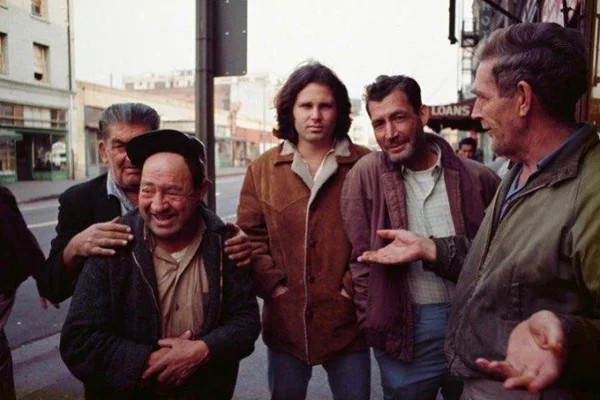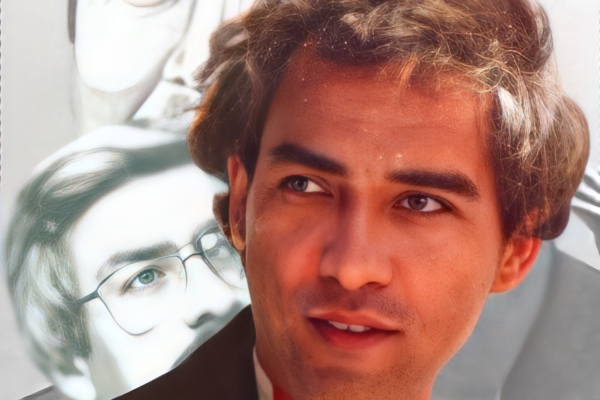“Had the president gotten out sooner, there may have been other candidates in the race. The anticipation was that, if the president were to step aside, that there would be an open primary.”
—Former House Speaker Nancy Pelosi
Should Kamala Harris have even been the Democratic presidential nominee? Was the process for a midsummer replacement to the ousted President Joe Biden not only flawed but also screwed up from the start? Should Biden have stepped down or been pushed out sooner?
The Monday morning quarterbacking on those questions has been brutal. History may not be any more forgiving. What will it say about the Democrats sticking with Biden so long? What will it say about Biden’s own legacy? And then there is Kamala Harris? America obviously never warmed up to her. Was she little more than an aunt by marriage who would never have been head of the family by choice?

The latest to join the open questioning of what has become a Democratic presidential campaign debacle is former House Speaker Nancy Pelosi. In a New York Times podcast interview, she aired frustrations over Presidident Biden’s delayed decision to step aside, suggesting it robbed the Democratic Party of an “open primary” that might have introduced a wider range of candidates.
Her comments, lightly veiled yet unmistakable, tapped into a growing sentiment among Democrats who feel Kamala Harris was effectively installed as the party’s successor without true democratic choice.
It’s a sentiment born of frustration, particularly among those who now look at Harris’s vice presidency as a misstep for the party. Harris’s approval ratings have hovered low, and there’s a feeling that she’s struggled to connect with a broader electorate. Her early appeal as a former senator and groundbreaking candidate—bringing both diversity and experience—was seen as a tremendous asset. However, in practice, many feel her role has been stymied by both internal and external political forces, leaving her largely on the sidelines during key moments, while the focus remained on the president himself. With limited exposure and even fewer landmark achievements, her potential ascendancy has become less assured.
To Pelosi’s point, an open primary could have brought the possibility of a fresh contender—someone able to balance the traditional Democratic values with the progressive surge felt among the party’s younger base. Democrats were hoping for a dynamic candidate who could galvanize younger voters while re-engaging the working-class demographics slipping away in battleground states. It’s a delicate dance Harris hasn’t quite mastered, and one an open primary might have handled better.
Now, however, there’s speculation about the future of Harris’s career. With influential voices like Pelosi’s openly lamenting missed opportunities, the question hangs: Does Harris even have a viable future in presidential politics? Certainly, her current visibility isn’t helped by the notion that she was handed her role rather than winning the party’s enthusiasm through the primary process. In the absence of an organic ascent, her position increasingly seems like an imposed fixture on a party that might be ready for a shakeup.
For Harris, the path forward could be challenging. Critics have started to openly wonder if her reputation as a “default” choice—a figurehead plucked without the electoral test that typically vets candidates—will damage her long-term appeal. There’s a growing argument that Harris, despite her historical significance, may struggle to win over centrist voters, who look for concrete achievements over symbolic representation. Harris has had difficulty with swing voters, and her approval ratings among independents are lackluster at best. If she is going to build a political future, she may need to recalibrate her image from that of a vice president thrust into position to a leader actively engaged with the core issues affecting the American people.
On the other hand, some argue Pelosi’s comments might inadvertently work in Harris’s favor by underscoring her resilience. Rather than folding under the pressure, Harris could use this moment to pivot, carving out a clearer political identity that contrasts with her quieter vice presidency. Embracing a more vocal and assertive role—addressing national issues like immigration and climate change—could help recast her as a force within the party. After all, history has shown that sidelined vice presidents sometimes emerge as tenacious and formidable candidates when given the chance to chart their own course.
But here’s the twist: For many Democrats, this moment doesn’t just underscore doubts about Harris; it exposes a larger flaw in the party’s succession planning. By not allowing an open primary, the Democrats missed the chance to genuinely assess the party’s needs and direction. Instead, the lack of competition may have stifled the chance for fresh ideas and energized new leadership.
Pelosi’s remarks also hint at a concern many share: the risk of stagnation if the party clings too tightly to established figures. It’s a timely worry. The GOP, meanwhile, has successfully rallied younger politicians who align with the party’s core principles yet bring renewed energy. The Democrats, by contrast, may need to rethink their strategy to avoid losing traction with new, diverse voters.
As Pelosi’s comments reverberate, Harris faces a choice. She can either defy expectations and redefine her trajectory or continue along a path that may lead to further criticism. Her challenge is steep: a party looking for more vibrancy, a progressive base expecting action, and centrist voters seeking relatability. A new approach could breathe life into her prospects and inspire the kind of support that made her a hopeful contender in the first place.
For now, Pelosi’s words serve as a call to reflect not only on Harris’s future but on the Democratic Party’s direction. Should Harris rise to the occasion, she could very well alter the course of her political destiny. But if not, Pelosi’s warning may serve as a harbinger of the need for broader reform—both in candidate selection and party dynamics—to ensure the Democratic base feels represented and the party remains competitive in the years to come.
TONY CASTRO, the former award-winning Los Angeles columnist and author, is a writer-at-large and the national political writer for LAMonthly. org. He is the author of the forthcoming novel The Book of Marilyn. He can be reached at tony@tonycastro.com.





